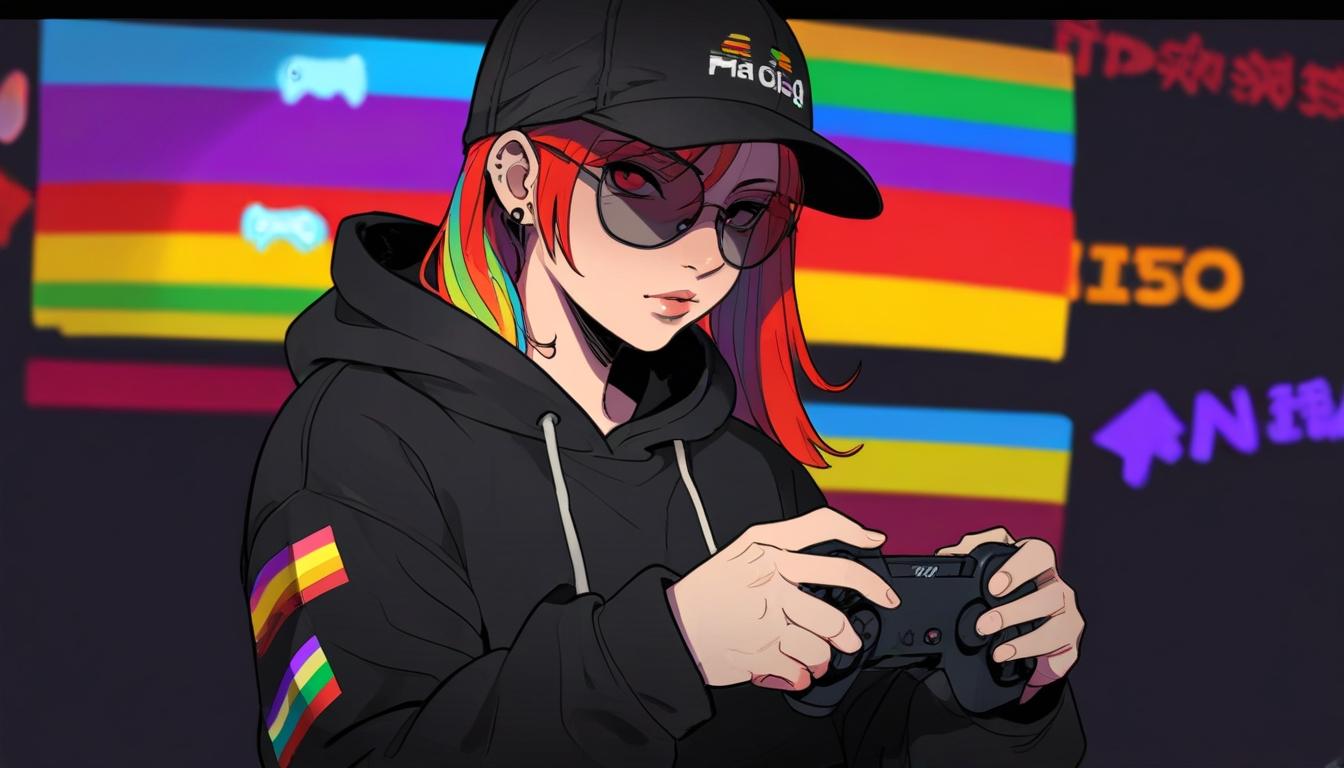An unsettling incident has drawn significant attention to the intersections between gaming culture and societal tensions related to LGBTQ+ rights. A player of the highly popular Grand Theft Auto series, who goes by the username "mrconservativealex," recently sparked outrage after posting a TikTok video in which he seemingly threatens violence against the LGBTQ+ community. The video, which was posted on a Thursday and has since garnered over 1.4 million views, features the man wearing a black hoodie, sunglasses, and a prominent red "Make America Great Again" hat. Set to George Thorogood's classic rock hit "Bad to the Bone," the video becomes a dark stage for the user’s disturbing comments about the upcoming Grand Theft Auto VI, which he claims will feature LGBTQ Pride Parades.
The troubling narrative portrayed in the TikTok clip was further compounded by the user's cryptic statement: "I just found out that GTA6 will have LGBTQ Pride Parades. Are you thinking what I'm thinking?" This phrase has ignited fears and interpretations of incitement among viewers, prompting reactions ranging from critical discussions about mental health to expressions of mockery from supporters. Comments on the post oscillated between condemnation of the user's threats, with statements such as "Bragging about living out your homicidal fantasy is weird," and unsettling affirmations of hate, revealing a stark division in public perception surrounding the issue.
In the backdrop of this controversy, an alarming trend has emerged in various parts of the world. For instance, in Ethiopia, heightened violence against the LGBTQ+ community has been reported, with instances of online harassment being aggravated by provocative content shared on platforms like TikTok. Influential users have called for violence against homosexual and transgender individuals, and there have been disturbing reports of individuals being outed and subjected to physical attacks. Such dynamics illustrate how social media platforms can act as catalysts for aggression, particularly in societies with ingrained conservatism and punitive legal frameworks against homosexuality.
This incident also plays into a broader narrative surrounding the recent scaling back of diversity, equity, and inclusion (DEI) initiatives in the United States—a movement that has seen major corporations like Pepsi, Disney, and Amazon reduce or eliminate their DEI programs in response to governmental pressures. These shifts follow a series of executive orders signed by Donald Trump aimed at dismantling such efforts within federal agencies. The rollout of these orders has fostered an environment where discussions around inclusion and cultural sensitivity have become increasingly contentious, influencing corporate policies and, by extension, public dialogues about tolerance and acceptance.
Adding to the unfolding drama, tech giant Google has recently faced backlash for the removal of reminders for significant cultural months such as Black History Month and Pride Month from its Calendar app. While the company has claimed that this decision was born out of a need for sustainability in managing numerous cultural events, the implications resonate deeply within discussions about representation and visibility in an increasingly polarized social climate. Users have expressed their discontent, illuminating a desire for platforms to play active roles in promoting inclusivity rather than complicity in erasure.
As discussions surrounding this incident continue, it becomes vital to acknowledge that the rhetoric embedded within gaming culture and social media can significantly influence real-world attitudes and behaviours. This case exemplifies a more extensive critique of a society grappling with the complex realities of inclusion, resistance, and the ramifications of spreading hate in an era where expressions of identity are both celebrated and vilified. The dialogues emerging from this incident highlight an urgent need for collective reflection on the responsibilities of individuals, companies, and platforms in fostering a safe and inclusive environment for all members of society.
Reference Map
- Paragraphs 1-2, 3-4, 5-6
- Paragraph 1, 2-3
- Paragraph 3-4
- Paragraph 5-6
- Paragraph 7-8
- Paragraph 7-8
- Paragraph 7-8
Source: Noah Wire Services
